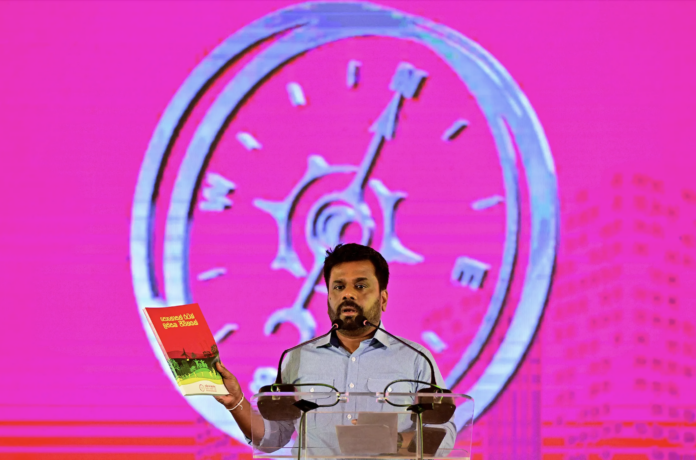
On the 22nd, the Election Commission of Sri Lanka released preliminary vote counting results, revealing that after the second round, Anura Kumara Dissanayake, leader of the left-wing Janatha Vimukthi Peramuna (JVP) and its campaign alliance, the National People’s Power (NPP). Dissanayake is anticipated to be sworn in as Sri Lanka’s ninth President on the 23rd.
The presidential election, held on the 21st, saw Dissanayake, representing the NPP, secure 42.3% of the votes in the first round, leading the leader of the Opposition Sajith Premadasa’s 32.8%. However, as no candidate surpassed the required majority threshold, the election proceeded to a second round.
In his inaugural address, Dissanayake acknowledged the significant challenges facing Sri Lanka and committed to fostering more effective governance. He also emphasized the importance of strengthening collaboration with the international community to navigate these challenges.
“I believe he is sincere in his intentions to transform Sri Lanka’s economic situation,” stated a student at University of Kelaniya, echoing the sentiments of many Sri Lankans toward Dissanayake.
Born in 1968 to a modest family in the North Central Province, Dissanayake has held positions as both a Cabinet Minister and Member of Parliament. According to Sri Lankan international affairs expert Yasiru Ranaraja, Dissanayake’s strategy emphasizes increased state intervention, reduced taxes, and stringent anti-corruption measures.
Dissanayake, along with his NPP, has successfully positioned himself as a catalyst for change, gaining widespread popularity among the public. Local media reports indicate that his campaign rallies regularly draw tens of thousands, with many supporters traveling significant distances to attend.
Political observers note that Dissanayake’s election marks the beginning of a new era and a pivotal moment for deep reflection on Sri Lanka’s current trajectory. In 2022, the country declared bankruptcy amid severe foreign exchange shortages, leading to a profound economic and societal crisis.
From the inability to finance essential imports to mass protests in Colombo and the resignation of the former president, Sri Lanka found itself at a historic crossroads. Dissanayake’s ascent to power has ignited renewed hope and optimism for the future.
Under Dissanayake’s leadership, the JVP has maintained a firm commitment to Marxist-Leninist principles, advocating for increased state intervention, lower taxes, anti-corruption measures, and pro-poor policies. In addition to economic reform, the JVP has taken a hardline stance on foreign relations, particularly in its criticism of the Indo-Sri Lanka Accord (1987), which it argues cemented excessive Indian influence over Sri Lanka.
The Dissanayake administration faces significant challenges, with economic recovery and the fulfillment of campaign promises being its immediate priorities. Public expectations are mixed, with some anticipating a transformative leadership that could steer Sri Lanka toward a brighter future, while others remain cautious, waiting to see how Dissanayake performs in practice.
Analysts highlight that Dissanayake’s inauguration not only signals a political shift but also serves as an important milestone in Sri Lanka’s pursuit of a new beginning. The direction Sri Lanka will take under his leadership remains uncertain, but the international community is watching closely, eager for answers.
While the path ahead for Sri Lanka’s new government is filled with both opportunities and challenges, Dissanayake’s election has undeniably turned a new page in the country’s political landscape.
Source: Gov IK, Bloomberg, Xinhua



